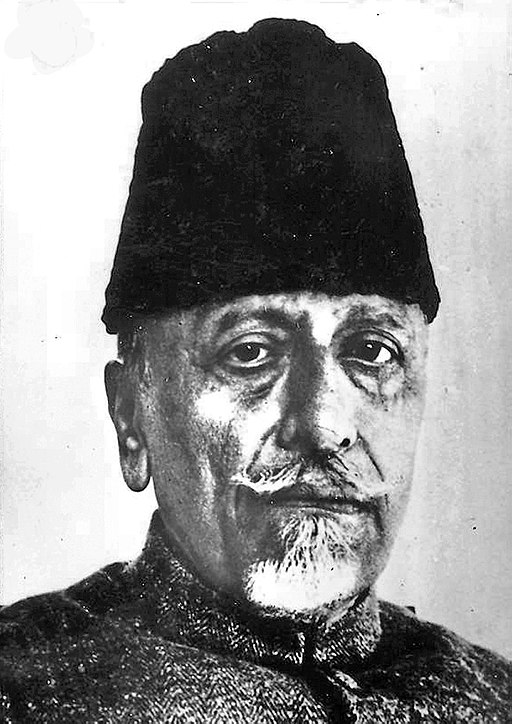National Education Day in Honour of Maulana Abul Kalam Azad and the Power of Education

Every year on November 11, India celebrates National Education Day, a day dedicated to reflecting on the transformative power of education and honoring the life and legacy of Maulana Abul Kalam Azad, a visionary leader, scholar, and the first Education Minister of independent India. This day is not only a celebration but also a commitment to the ideals Azad championed, emphasizing equitable access to quality education and the central role of education in creating an inclusive and progressive society.
Remembering Maulana Abul Kalam Azad’s Contributions
Maulana Abul Kalam Azad, born on November 11, 1888, was a multifaceted personality. He was an ardent freedom fighter, an influential scholar, and a passionate advocate for education. As a young man, Azad was deeply influenced by the ideas of independence and social reform, and he eventually became one of the most prominent voices in India’s struggle for freedom. He was instrumental in shaping India’s educational framework, striving to make education a tool for both individual growth and national progress.
As the first Education Minister of independent India, Azad’s policies and programs laid the foundation for the country’s modern educational landscape. His visionary leadership led to the establishment of institutions like the Indian Institutes of Technology (IITs), which have since become global symbols of educational excellence, and the University Grants Commission (UGC), which continues to regulate and promote standards in higher education across India. His efforts extended beyond creating institutions; Azad fervently believed in the importance of education as a basic right for every citizen. His focus on extending educational opportunities to the rural poor and empowering girls with education reflected his commitment to inclusive development and social equity.
The Significance of National Education Day
National Education Day is an opportunity to recognize and reiterate the significance of education in national development. Education equips individuals with knowledge, skills, and values essential for personal growth and active citizenship. This day serves as a reminder of the role education plays in building a progressive nation and a socially cohesive society. Azad’s vision continues to inspire efforts toward creating an equitable educational system that enables individuals from all walks of life to contribute meaningfully to society.
National Education Day also highlights the importance of expanding educational access, improving educational quality, and addressing challenges such as regional disparities, gender inequality, and lack of resources in rural areas. Maulana Azad’s ideals underscore the need to make education more inclusive, ensuring that every child, regardless of their background, has the opportunity to learn and succeed. Today India has both government and private run schools.

How National Education Day is Celebrated in India?
Educational institutions, government bodies, and civil society organizations across India organize various activities on National Education Day to promote awareness about the value of education and Azad’s contributions. Some of the common activities include:
-
Essay Competitions and Debates: Schools and colleges often hold essay writing and debate competitions focused on themes such as the importance of education, the vision of Maulana Abul Kalam Azad, and challenges facing the education sector in India.
-
Workshops and Seminars: Many institutions organize workshops and seminars where educators, policymakers, and students discuss contemporary educational issues and innovative ways to address them.
-
Awareness Campaigns: Campaigns highlighting the benefits of education, especially for marginalized communities, are launched to raise awareness among parents and students in underserved areas.
-
Recognizing Educational Achievements: Some schools and colleges use this day to honor students and teachers who have made significant contributions to learning, leadership, or community service in the field of education.
-
Policy Discussions and Announcements: Government and educational institutions use this platform to discuss policy initiatives that focus on improving access, quality, and inclusivity in education.
Moving Forward with Azad’s Vision
In the spirit of Maulana Abul Kalam Azad’s legacy, National Education Day reminds us of the ongoing work needed to make education accessible, relevant, and equitable for all. Challenges such as digital divides, regional inequalities, and quality disparities need continuous attention and innovative solutions.
The National Education Policy (NEP) 2020, launched with an aim to make India a global knowledge superpower, is one such effort inspired by Azad’s vision. It stresses holistic, multi-disciplinary education, equitable access, and a focus on critical thinking and innovation. By aligning with the ideals that Maulana Azad espoused, India’s educational framework continues to adapt and improve to meet the needs of a dynamic society.
National Education Day is more than just a day of remembrance; it is a call to action to uphold the values Maulana Abul Kalam Azad stood for. His dedication to education as a path to freedom, equality, and progress continues to be relevant and necessary. Through our collective efforts to enhance educational access and quality, we not only honor Azad’s legacy but also lay the foundation for a more inclusive, knowledgeable, and empowered India.
On this day, as we celebrate the profound impact of education, let us renew our commitment to making education a bridge to opportunity and a powerful tool for societal transformation. Whether through community involvement, advocating for educational reform, or supporting initiatives in our local schools, each of us has a role in building the future that Maulana Abul Kalam Azad envisioned.
Image Source:National Repository of Open Educational Resources, CC BY-SA 3.0 <https://creativecommons.org/licenses/by-sa/3.0>, via Wikimedia Commons
Stay Tuned
For upcoming activities and contest for Teachers, Schools and ofcourse all the Lil Bloggers
Register Your School Sign Up Parents
National Education Day: Honoring Maulana Azad’s Legacy in Education |